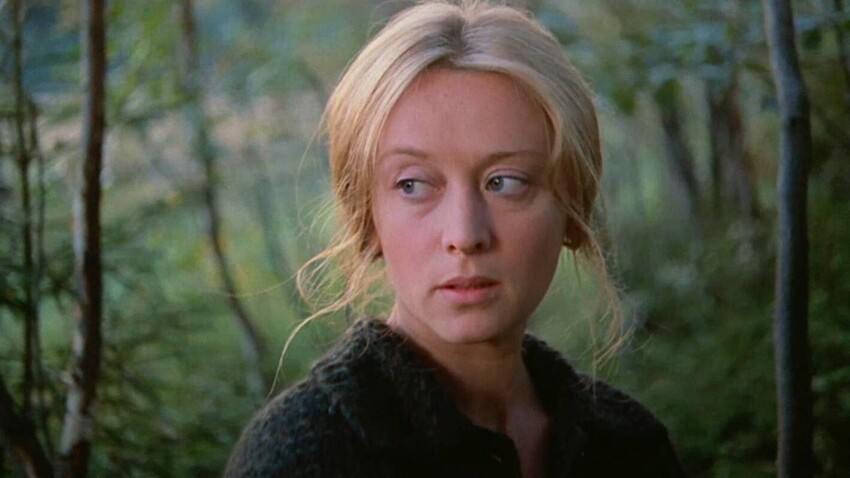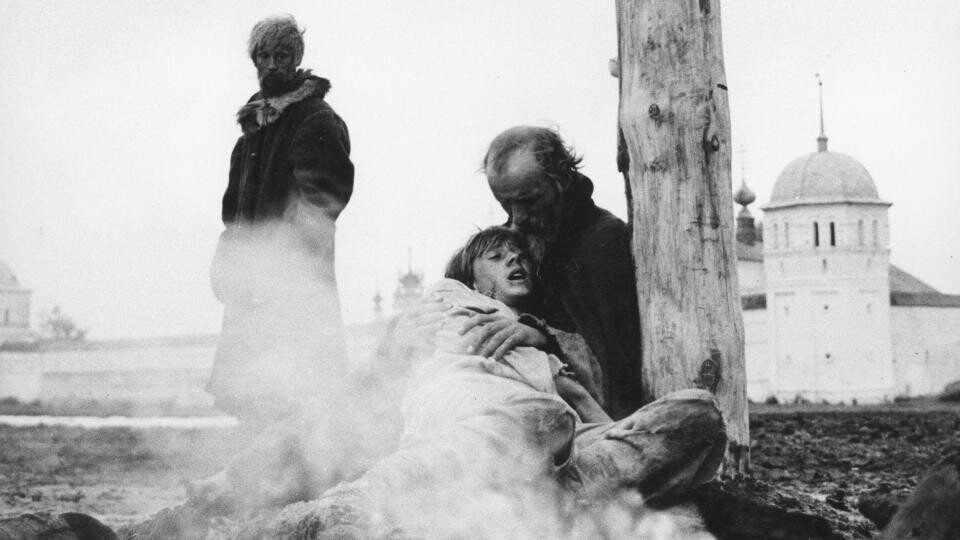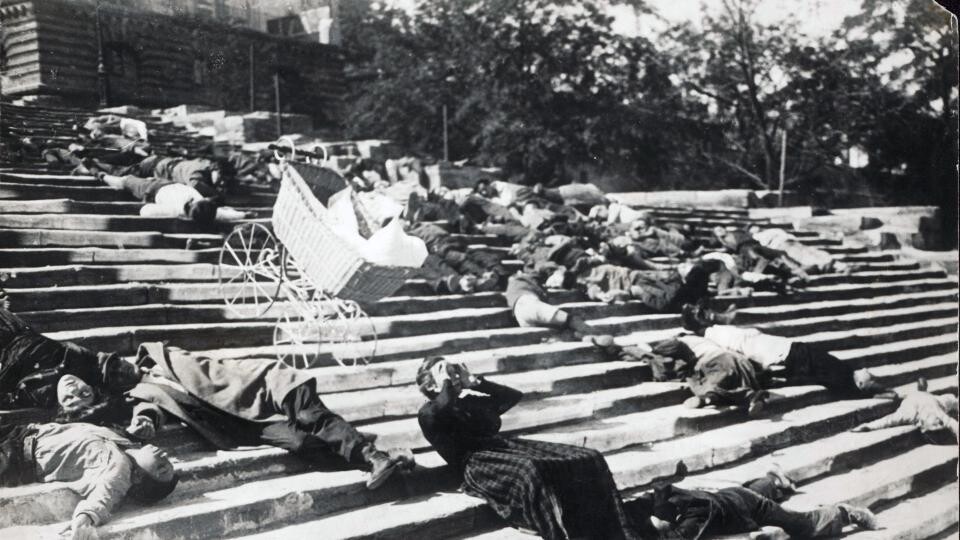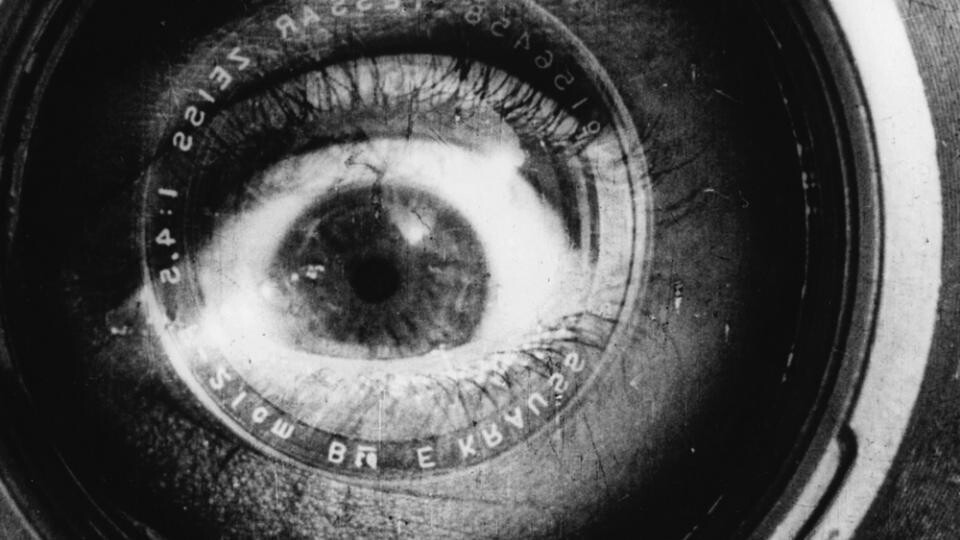
A still from Tarkovsky's 'Mirror'
MosfilmOnce every decade since 1952, the editorial team at ‘Sight & Sound’ (the British Film Institute’s culture magazine) asks respectful film critics, programmers and curators from around the world to partake in a poll to determine the greatest films ever made. And each ten years, this list changes. The most recent ranking was revealed in December 2022 and includes these five Russian movies.
Rank 67

“Andrei Tarkovsky’s epic portrait of a medieval artist may be the most wrenching depiction of belief, creativity and the search for meaning ever filmed,” Sight & Sound captions the movie.
In the atheistic Soviet state, great and progressive film director Andrei Tarkovsky made a movie about the medieval icon painter that is considered a saint in the Russian Orthodox Church. Despite all the struggles with Soviet censorship and critics for gloominess, this movie is now considered one of Tarkovsky’s and Russia’s greatest movies ever made and constantly included in many of the top-rankings around the world.
Set as an episodic flick, it features eight moments in the life of Andrei Rublev. This wandering artist and icon painter is full of faith, despite being surrounded by a dark and barbaric 15th-century world.
Rank 54

“Sergei Eisenstein’s renowned agit-drama of proto-revolutionary mutiny and repression, often quoted but still powerful in its montage effects.”
Another Soviet iconic movie, constantly included in all the possible ‘best films ever’ ratings (and was actually included in ‘Sight & Sound’s 1952 list, too).
In 1905, sailors of the Imperial Navy warship ‘Potemkin’, stationed in the port of Odessa city (then part of the Russian Empire), revolted, because they had no food supplies other than wormy meat. Police aggressively put down the revolt and the locals who supported the sailors. This event was one of the first signs of the upcoming revolution in Russia. The Eisenstein movie was shot in 1925 to commemorate the uprising’s 20th anniversary.
‘Battleship Potemkin’ is considered a classic of world cinema. The iconic scene of soldiers marching down the Odessa steps has been reimagined in ‘The Untouchables’, ‘Naked Gun 33⅓’ and other movies.
Rank 43

“Two men recruit a guide to take them into ‘the Zone’, a mysterious realm where one’s innermost wishes come true, in this metaphysical sci-fi epic.”
This Tarkovsky’s science fiction movie is based on the Strugatsky Brothers novel ‘Roadside Picnic’. In a fictional world, the protagonist – Stalker – earns money by leading illegal tours in the so-called ‘Dead Zone’. This is an area of hidden danger that contains a room that grants visitors their innermost desires.
According to the plot, Stalker sets off to the zone with the Writer and the Professor. Paths through the desolate area – as much a state of mind as a place – can only be sensed, not seen, in this metaphysical maze.
And, of course, in Tarkovsky’s movie, the fantasy world is turned into a mystical landscape with every snapshot, accurately providing the atmosphere of the foggy Zone’s danger.
Rank 31

“Cinema scaled new heights of visual poetry in this deeply personal, elliptical film by the master of ‘sculpting in time’.”
‘Mirror’ is full of autobiographical memories of a rural childhood before World War II. The movie’s kaleidoscopic approach offers no straight narrative and combines incidents, dreams and memories along with newsreel footage.
In this movie, Tarkovsky’s cinematic language is as close to poetry as cinema can actually get. The movie also reproduces poems by Arseny Tarkovsky, the director’s father, who was a respected Soviet-era poet.
‘Mirror’ shares its place with Federico Fellini’s ‘8½’ , also full of memories, dreams and fantasies, as well as Alfred Hitchcock’s ‘Psycho’.
Rank 9

“Bottomless invention and frenetic, dizzying montage make this city symphony one of cinema’s sharpest, most exciting experiences nearly a century after its release.”
‘Man with a Movie Camera’ has no narrative, it just shows city life through the lens of a cameraman. This was the first ever movie of this kind, a brave experiment and statement of the very new art of cinema.
Dziga Vertov is one of the world’s documentary film pioneers. He was the first to consider film as an independent artifact separate from theatrical performance or a historical document. Vertov considered that the effectiveness of a film’s impression on the viewer was not related to the actors performing in front of the camera. He realized and promoted the fact that film can make a stronger impression with the rhythm the different shots and close-ups alternate and how fast and slow motion are used.
Dear readers,
Our website and social media accounts are under threat of being restricted or banned, due to the current circumstances. So, to keep up with our latest content, simply do the following:
If using any of Russia Beyond's content, partly or in full, always provide an active hyperlink to the original material.
Subscribe
to our newsletter!
Get the week's best stories straight to your inbox